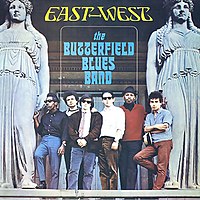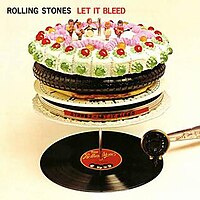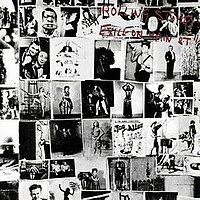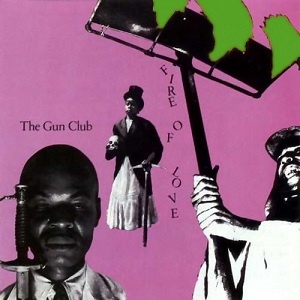
LA RECENSIONE
When in 1961, “King Of The Delta Blues Singers” was published, few realized the significance of those recordings. John Hammond had unearthed the Rosetta Stone of rock, but it would still be a few years before its true value was recognized, and more before anyone was able to decipher it.
Throughout the sixties, Robert Johnson's rise knew no halt, yet much of his catalog was still only available on 78 rpm records. In 1970, Columbia finally decided to release the remaining part of those recordings on a single album, "King Of The Delta Blues Singers, Volume II," addressing the true cult that had arisen around his figure over the years. Thus, sixteen blues tracks were pressed on vinyl (three of which were previously unreleased), adding nothing and taking nothing away from the immense influence that Johnson exerted on the evolution of rural blues and the birth of rock.
His musical output thus extended to a mere twenty-nine tracks, twenty-nine recordings in which the prophecy of rock and with it its curse are indelibly imprinted. Twenty-nine desperate chants in which Johnson raves about a universe of solitude and perdition, where the highway is the boundary between the world of the living and the dead. A boundary so thin that once at the crossroads, it's no longer possible to distinguish between the two; it's no longer possible to turn back. It is there that Robert Johnson sells his soul to the devil. It is then that he receives talent in exchange for eternal damnation.
His are desperate litanies that seamlessly blend the world of the living, where skin color makes all the difference, with that of the dead, where only the color of the soul matters. There is no redemption for Robert Johnson. Everything is black. In his voice, there is no hope, only resignation, restlessness, fear. His lyrics are obscene, violent; sex and the devil are his obsessions. His are jagged, claustrophobic, sometimes disturbing blues, in which Johnson first embodies the sound of future rock bands, combining the intensive and evocative use of the slide guitar with actual bass patterns on the first two strings and completely unrelated melodic lines on the others, while foot and thumb keep the time. An elaborate yet impressive guitar solution that more than once deceives the listener.
When Robert Johnson's name will be uttered again after decades of silence, his story will not take long to repeat itself, claiming illustrious victims. His scant corpus of music will become a crucial crossroads from which rock history will pass and never return. His life, shrouded in mystery, will fuel legends and morbidity, and many musicians will, directly or indirectly, pay tribute to the most innovative pre-war bluesman. His unsettling presence will be felt in countless upcoming records.
If you recognize some of these covers, Robert Johnson is already part of your genetic heritage without you even realizing it. If you recognize these covers, "King Of The Delta Blues Singers" and "King Of The Delta Blues Singers, Volume II" are already your favorite albums, you just haven't listened to them yet.








A sincere tip. Today you can find remastered versions where the sound has been digitally repaired and cleaned of noise and hiss. Avoid them like the plague.
Loading comments slowly
Summary by Bot
The review highlights Robert Johnson’s 'King of the Delta Blues Singers, Volume 2' as a vital continuation of the legendary bluesman's influential catalog. It underscores the album's deep impact on blues and the birth of rock music, noting the haunting, desperate themes and Johnson’s groundbreaking guitar technique. The review also stresses the album's cult status and advises against modern remastered versions. Ultimately, it calls attention to Johnson's role as a foundational figure whose music permeates rock history.Tracklist Lyrics Videos
02 I Believe I'll Dust My Broom (02:59)
I'm gon' get up in the mornin', I believe I'll dust my broom
I'm gon' get up in the mornin', I believe I'll dust my broom
Girlfriend, the black man you been lovin', girlfriend, can get my room
I'm gon' write a letter, telephone every town I know
I'm gon' write a letter, telephone every town I know
If I can't find her in West Helena, she must be in East Monroe, I know
I don't want no woman, wants every downtown man she meet
I don't want no woman, wants every downtown man she meet
She's a no good doney, they shouldn't 'low her on the street
I believe, I believe I'll go back home
I believe, I believe I'll go back home
You can mistreat me here, babe, but you can't when I go home
And I'm gettin' up in the morning, I believe I'll dust my broom
And I'm gettin' up in the morning, I believe I'll dust my broom
Girlfriend, the black man that you been lovin', girlfriend, can get my room
I'm gon' call up Chiney, she is my good girl over there
I'm gon' call up Chiney, she is my good girl over there
If I can't find her on Philippine's Island, she must be in Ethiopia somewhere
03 Sweet Home Chicago (03:02)
Oh
Baby, don’t you want to go
Oh
Baby, don’t you want to go
Back to the land of California
To my sweet home Chicago
Oh
Baby, don’t you want to go
Oh
Baby, don’t you want to go
Back to the land of California
To my sweet home Chicago
Now one and one is two
Two and two is four
I’m heavy loaded baby
I’m booked, I gotta go
Cryin’, baby
Honey, don’t you want to go
Back to the land of California
To my sweet home Chicago
Now two and two is four
Four and two is six
You gon’ keep on monkeyin’ ‘round here friend-boy,
You gon’ get your
Business all in a trick
But I’m cryin’, baby
Honey, don’t you want to go
Back to the land of California
To my sweet home Chicago
Now six and two is eight
Eight and two is ten
Friend-boy, she trick you one time
She sure gon’ do it again
But I’m cryin’, baby
Honey, don’t you want to go
Back to the land of California
To my sweet home Chicago
I’m goin’ to California
From there to Des Moines, Iowa
Somebody will tell me that you
Need my help someday, cryin’
Hey, hey
Baby, don’t you want to go
Back to the land of California
To my sweet home Chicago
11 Little Queen of Spades (02:17)
Now she is a little queen of spades, and the men will not let her be
Hoo, she's the little queen of spades, and the men will not let her be
Ev'ry time she makes a spread, hoo, fair brown, cold chills just run all over me
I'm gon' get me a gamblin' woman, if it's the last thing that I do
Hoo, gon' get me a gamblin' woman, if it's the last thing that I do
Well, a man don't need a woman, hoo fair brown, that he got to give all his money to
Everybody say she got a mojo, now she's been using that stuff
Mmmm, everybody say she got a mojo, cause she's been using that stuff
But she got a way of trimmin' down, hoo fair brown, and I mean it's most too tough
Now, little girl, since I am the king, baby, and you is a queen
Whoo hoo, since I am the king, baby, and you is a queen
Let’s us put our heads together, hoo fair brown, then we make our money green
12 Malted Milk (02:20)
I keep drinkin' malted milk1, try'n to drive my blues away
I keep drinkin' malted milk, try'n to drive my blues away
Baby, you just as welcome to my lovin', as the flowers is in May
Malted milk, malted milk, keep rushin' to my head
Malted milk, malted milk, keep rushin' to my head
And I have a funny, funny feelin', and I'm talkin' all out my head
Baby, fix me one more drink, and hug your daddy one more time
Baby, fix me one more drink, and hug your daddy one more time
Keep on stirrin' my malted milk mama, until I change my mind
My door knob keeps on turnin', it must be spooks around my bed
My door knob keeps on turnin', must be spooks around my bed
I have a warm, old feelin', and the hair risin' on my head
__________
Note 1: malted milk, a variation of a milk shake only you add a spoonful of malt,
an extra ingrediant that gives it an additional malted flavor. Thanks to Jimmy
See, soda "jerk" by confession. Malt is a wheat byproduct, grain (as barley)
softened by steeping in water, allowed to germinate, and used especially in
brewing and distilling. See also this discussion.
 •
Rating:
•
Rating: 